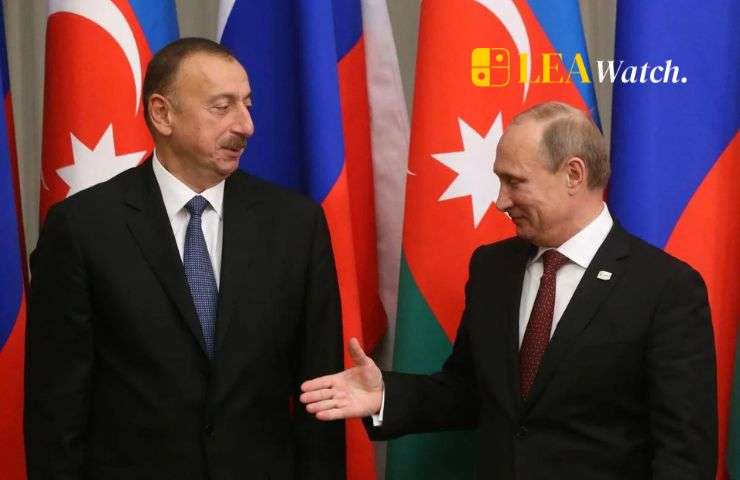Azerbaijan’s recent confrontational behaviour towards Russia represents a substantial geopolitical shift in the South Caucasus region. Azerbaijan was previously framed as a regional ally of Moscow. With their recent signalling of a strategic realignment towards Western partners, Turkey, and Israel, there is a worry that both the mutual arrests, the downing of an Azerbaijani airliner, and additional political signalling is proving disruptive to potential regional realignments and altering Moscow’s influence across the former Soviet republics.
Root Causes of the Crisis
1.The Flight Downing Incident
On December 25, 2024, Russian air defences shot down Azerbaijan Airlines Flight 8243 by accident near Aktau, Kazakhstan, killing 38 people. Azerbaijan immediately claimed the act was intentional negligence and demand Russia create a formal statement of responsibility for the incident, punish the guilty individuals, and pay reparations to the families of the deceased. Azerbaijan President Ilham Aliyev rejected Russia’s first “condolences” and determined it was unacceptable. Russia refused to take even tacit legal greeting that only added to the enmity from Baku.
2.Custodial Deaths of Azerbaijanis in Russia
On June 27, 2025, in Yekaterinburg, Russian security forces detained dozens of ethnic Azerbaijanis in relation to a longrunning criminal investigation. Two brothers died in custody under suspected torture. Azerbaijani authorities launched their own criminal inquiry and accused Russian police of ethnic violence and severe misconduct.
Azerbaijan’s Retaliatory Measures
In response, Baku directly escalated by cancelling planned cultural and diplomatic activities, closing Russia’s “Russian House” in Baku, expelling or detaining several Russian citizens, and raiding the Sputnik Azerbaijan office detaining its staff on money laundering and fraud charges. Some detainees were reported by their families to display visible signs of abuse. Azerbaijan also refused entry to a Russian parliamentarian who had made racist remarks, and it required explanations for the deaths while in Russian custody. The government also publicly sounded warnings against possible litigation in international courts for both situations.
Strategic Context: Overlap with Western Aligned Partners
Azerbaijan has been building closer relations with Turkey, Israel, and China: Since its military victory in Nagorno-Karabakh in the year 2023, the Baku regime relies on Turkey for diplomatic, military, and economic support. It has enhanced trade and energy co-operation with Israel, also using Israel as a counterweight to Iran. In April 2025, Aliyev visited Beijing, and they signed a Comprehensive Strategic Partnership, enhancing trade and infrastructure collaboration with China.
Shifting Power in the South Caucasus: Russia’s Influence
The Azerbaijan-Russia standoff reflects larger geopolitical change in the South Caucasus, where Moscow’s traditional role as the strongest power is weakening, as the Kremlin is occupied with its ongoing invasion of Ukraine. Russia’s inability to impose its authority in the region has been abdicated under these conditions, and the Kremlin’s unwillingness to intervene in Azerbaijan’s conflicts with Armenia in 2020-2023 has severely undermined Moscow’s legitimacy as a dominant regional power. A vacuum is left behind as Armenia, Georgia, and even Kazakhstan looks to pursue new relationships while distancing themselves from Russian hegemony.
Azerbaijan, specifically, is targeting this vacuum for power. They are increasing relationships with Turkey, Israel, China, and recently with more Eastern-Bloc countries that are NATO with the EU. These opened relationships can change the region. At the same point, Armenia, which was always aligned with Russia, is moving to be engaged with the West, feeling abandoned by Moscow. An east-to-west shift throughout the region may represent a larger geopolitical shift with Russia’s declining influence.
Azerbaijan’s Strategic Pivot and the Risk of Regional Polarization
Azerbaijan is strategically using its geographical location and energy resources to establish itself as an important Eurasian hub. Among other things, Azerbaijan hopes to accomplish this through the “Zangezur Corridor” which is a land route designed to facilitate connection between mainland Azerbaijan and the Nakhchivan exclave, through Armenia. By establishing this route, Azerbaijan will be able to route traffic through Armenia away from Iran and Russia while facilitating traffic for its Turkish, EU and Israeli partners, and raising the ire in Tehran and Yerevan.
At the same time, Azerbaijan’s closer ties with Western partners also offer the EU and U.S. another energy partner willing to reduce their dependence on Russian gas. However, this realignment comes with its own risks. If increased tensions lead to retaliation, either economically, through cyber warfare, or the presence of regional proxies such as Iran and Russia, the Caucasus could become a battleground for influence, with global implications.
Conclusion
Azerbaijan’s latest increase in its diplomatic clash with Russia is more than a momentary outbreak of friction; it is the start of a permanent strategic shift in the relationship. Aliyev has utilized grievances – the jet downing, the custodial deaths, etc. and sought to use them against Moscow’s authority. The story here is rapid change taking place: Azerbaijan is reaching out to Western-friendly partners and positioning itself as a rising regional power, while Russia underscores it weaken grasp in its historical sphere, with ramifications for Eurasian geopolitics more widely.
Frequently Asked Questions (FAQs)
1.Why did Azerbaijan escalate tensions with Russia now?
Because multiple incidents in late 2024 and mid2025, including the downing of an Azerbaijani plane and deaths of Azerbaijani citizens in Russian custody, prompted a forceful Baku response and opened the door to broader geopolitical realignment.
2.Has Russia directly retaliated?
So far, Russia has issued travel warnings to its citizens and refrained from mass reprisals, while publicly blaming external actors for inflaming the dispute. But pressure within Russia calls for more assertive response.
3.How does this affect the Zangezur Corridor?
Azerbaijan is pushing for an international land corridor through Armenia to Nakhchivan. The project sidesteps Russian control and aligns with Turkey–EU interests, intensifying tensions with Russia and Iran.

